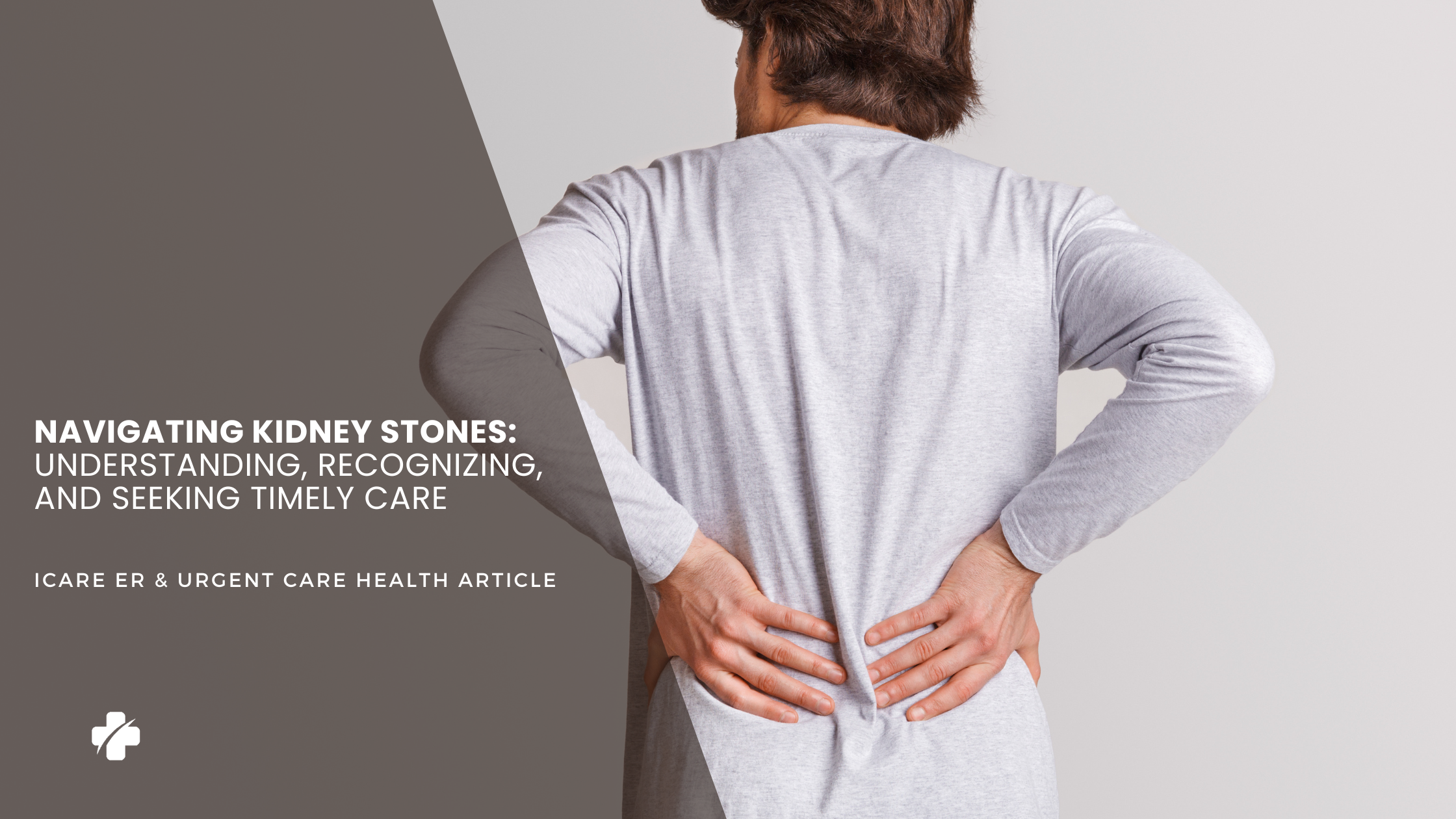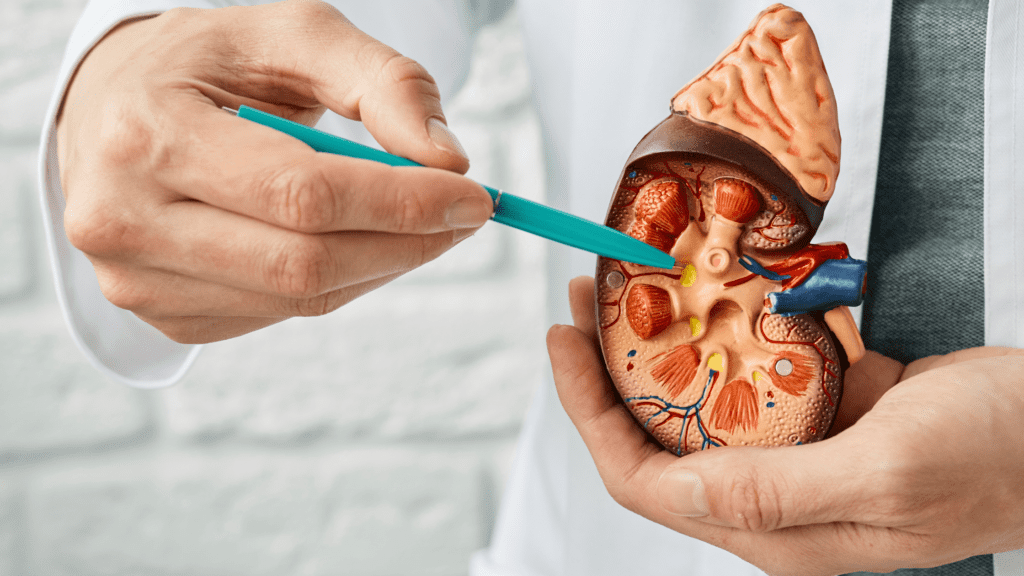Navigating Kidney Stones: Understanding, Recognizing, and Seeking Timely Care

Dealing with kidney stones can be an incredibly painful experience, often leaving individuals in discomfort and seeking quick relief. At iCare ER & Urgent Care, our team of dedicated board-certified ER physicians is committed to providing swift evaluation, accurate diagnosis, and effective treatment for kidney stones. Let’s delve into the intricacies of kidney stones, covering their symptoms, characteristics, and the crucial aspects of seeking timely medical care.
What is a Kidney Stone?
A kidney stone, a crystalline formation within the kidneys, can lead to significant discomfort and pain. These hardened deposits are composed of minerals, salts, and various materials. While symptoms might not be evident initially, they become apparent when the stones initiate the passing process. Recognizing these signs becomes paramount for timely and effective intervention.
What Causes Kidney Stones?
Several factors contribute to the development of kidney stones, including:
- Obesity
- Diabetes
- Dehydration
- Dietary factors (high salt, oxalate, or calcium intake)
- Certain medications
- Underlying health conditions
- Hyperparathyroidism
- Hormonal conditions
- Personal or family history of kidney stones
Understanding these causes empowers individuals to make informed decisions about their lifestyle and health choices, aiding in preventing the occurrence of kidney stones.
Deciphering the Signs & Symptoms: Do I Have a Kidney Stone?
Many find themselves questioning, “How Do I Know If I Have a Kidney Stone?” or pondering when it’s appropriate to head to the ER for a kidney stone. While diagnosing kidney stones isn’t always straightforward, specific signs may indicate their presence. Common symptoms include:
- Pain in the back or flank (typically on one side)
- Lower abdominal pain
- Blood in the urine
- Frequent urination
- Difficulty urinating
- Painful urination
- Nausea or vomiting
- Fever, chills, or sweating
Professional diagnosis becomes crucial, necessitating imaging studies and diagnostic tools to confirm the stone’s presence, location, and potential passage.
When to Seek Treatment for Kidney Stones: When Should I Go To The ER for Kidney Stones?
Understanding when to seek treatment is vital. While smaller stones may pass on their own, larger ones often require medical intervention. It’s advisable to visit the nearest ER if you experience:
- Severe pain
- Persistent nausea or vomiting
- High fever
- Prolonged symptoms
- Inability to urinate
- Blood in the urine
iCare ER & Urgent Care’s board-certified physicians, armed with advanced tools, can accurately diagnose your condition. Depending on the stone’s characteristics, they will recommend the appropriate treatment for swift and lasting relief.
Finding Relief at iCare ER & Urgent Care
When grappling with kidney stones, never compromise your well-being. If you suspect a kidney stone or experience troubling symptoms, visit iCare ER & Urgent Care in Frisco, Fort Worth, or Forney, TX. Our experienced team is ready to provide relief and guidance on preventing future occurrences. Your comfort, health, and safety matter, and we’re here to support you. Walk-ins are welcome, or schedule an appointment online for swift care. Trust iCare ER & Urgent Care for comprehensive and compassionate assistance in managing kidney stones.
FOLLOW US ON SOCIAL FOR MORE RELEVANT,
LOCAL HEALTH INFORMATION
